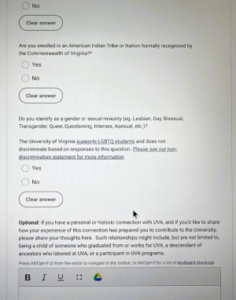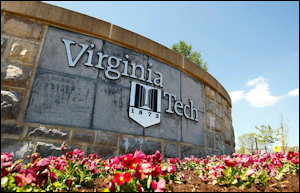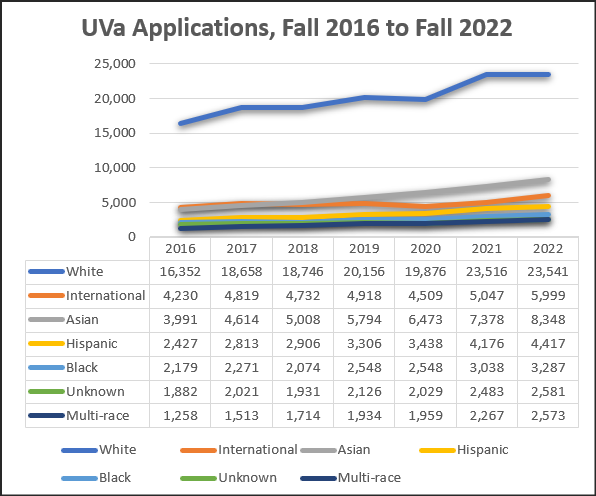 by James A. Bacon
by James A. Bacon
As the Board of Visitors ponders how much to raise tuition & fees in the next two academic years, the University of Virginia is grappling with strong inflationary pressures and a long-term shortfall in state aid, senior university administrators said Wednesday.
Even so, administrators told the Board’s Finance Committee, UVa offers a great “value proposition” compared to other Top 50 universities. Its in-state tuition is lower than that of top private universities, and its four-year graduation rate is the highest of any public university in the country.
The Finance Committee meeting yesterday marked the beginning of a two-month decision-making process. The purpose of the initial meeting, said Committee Chair Robert M. Blue, was to provide “context” for the discussion. A November hearing will allow students and others to express their views about college costs. The Board is scheduled to adopt a new tuition structure in December.
Although university officials did not say explicitly that a tuition increase is justified, the “context” presented was geared to supporting such a conclusion. Board members offered no pushback during the one-and-a-half-hour session, asking only a few questions for purposes of clarification. They did not drill into the data proffered by administrators, nor, despite assurances that UVa was working assiduously to achieve efficiencies and reduce redundancies, did they ask for specifics. No one addressed faculty productivity, administrative overhead, or other drivers of university costs. Continue reading








